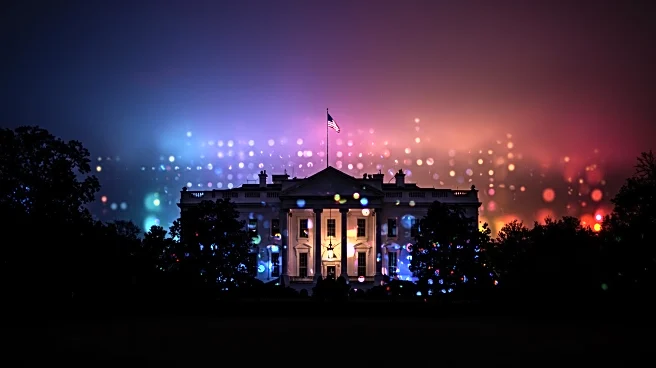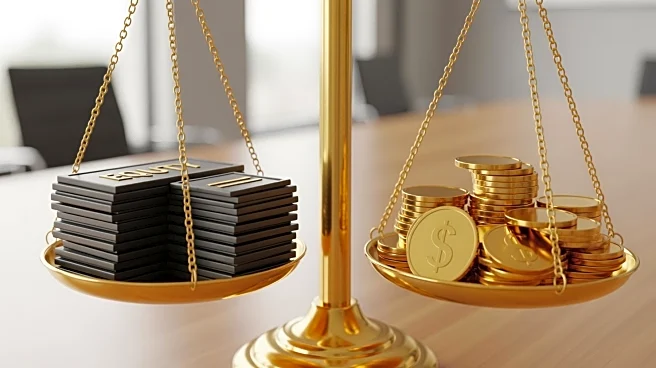What's Happening?
The White House has launched an official TikTok account, marking a significant shift in policy from previous attempts to ban the app due to national security concerns. The account's first post, a 27-second clip, quickly gained traction with approximately 4,500 followers within an hour. President Trump, who initially advocated for a ban on TikTok citing its Chinese ownership, has softened his stance, crediting the platform for helping him secure young voter support in the 2024 presidential election against Kamala Harris. Despite a federal law requiring TikTok's sale or ban, Trump has paused the enforcement of this law, extending the deadline for TikTok to find a non-Chinese buyer. The app remains popular in the U.S., with 170 million users, and discussions between ByteDance, TikTok's parent company, and the U.S. government are ongoing.
Why It's Important?
The launch of the White House's TikTok account highlights the evolving relationship between the U.S. government and social media platforms, particularly those with foreign ownership. This development could influence public policy and national security strategies, as TikTok's popularity among young voters presents both opportunities and challenges for political communication. The decision to maintain TikTok's presence in the U.S. reflects a broader trend of integrating digital platforms into political campaigns and governance, potentially impacting how future administrations engage with constituents. The ongoing discussions about TikTok's ownership and compliance with U.S. laws underscore the complexities of balancing national security concerns with the benefits of digital engagement.
What's Next?
As the deadline for TikTok to find a non-Chinese buyer approaches, the app's future in the U.S. remains uncertain. The White House's decision to launch an official account suggests a potential shift in policy, but the legal and political challenges surrounding TikTok's ownership continue. Stakeholders, including lawmakers and industry leaders, are likely to monitor the situation closely, as any changes could have significant implications for U.S.-China relations and the tech industry. The outcome of ongoing negotiations between ByteDance and the U.S. government will be crucial in determining TikTok's operational status in the country.
Beyond the Headlines
The White House's engagement with TikTok raises questions about the ethical implications of using foreign-owned platforms for political communication. It also highlights the cultural impact of social media on political discourse, as platforms like TikTok become increasingly influential in shaping public opinion and voter behavior. The decision to embrace TikTok, despite previous security concerns, reflects a broader trend of prioritizing digital engagement over traditional media channels, potentially reshaping the landscape of political communication in the U.S.









